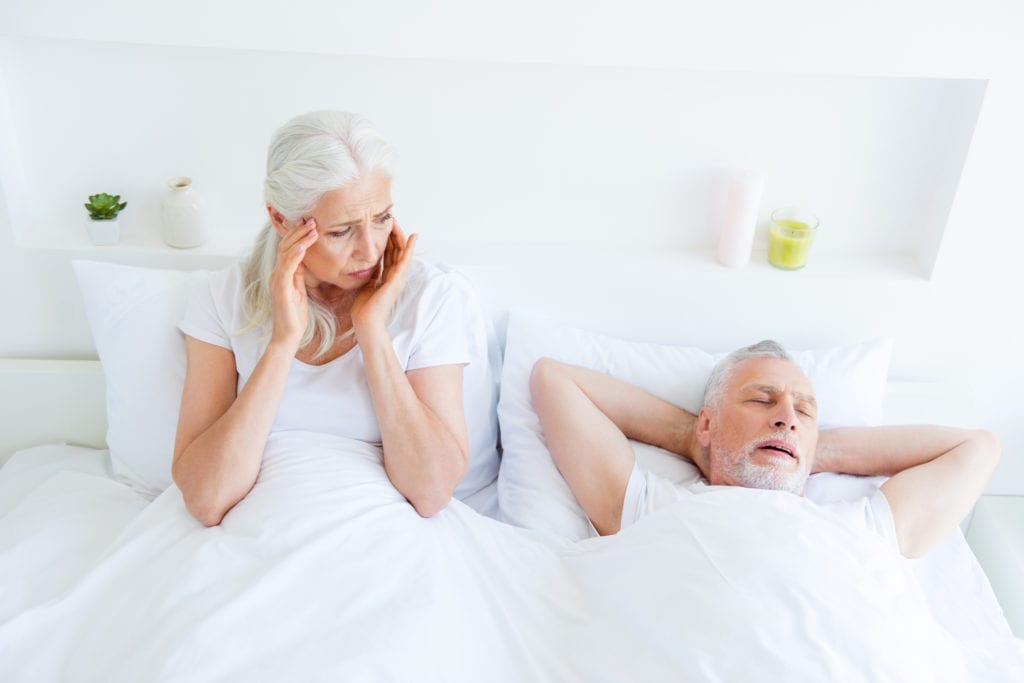Patients don’t often know their dentist can help them manage their loud snoring. Loud snoring, or sleep apnea, occurs when the patient cannot maintain a proper airway when they sleep. The soft tissues in the back of their throats prevent them from breathing, causing them to snore or gasp for air in their sleep.
While patients are often unaware of their sleep apnea, their sleep partners or roommates are usually the first to notice this concern. We understand how important it is for you and your loved ones to get a good night’s sleep every night. In some cases, untreated sleep apnea can contribute to dental issues that may require restorative dentistry to correct. This is why we are happy to provide sleep apnea treatment services.
Learn more about how we help sleep apnea patients below.

Sleep Apnea Treatment in Suffolk, VA
Dr. Steve Gwaltney, Dr. J. Ryland Gwaltney, and Dr. Whitney Gwaltney are highly-trained dentists in Suffolk, VA, offering many restorative dentistry treatments. They have helped many patients manage their sleep apnea symptoms and get back to getting a good night’s sleep. We are happy to help patients with mild to moderate sleep apnea concerns manage their symptoms using oral appliance therapy.
Oral appliance therapy involves the use of a night guard. The night guard is designed to be comfortable and snug, so you barely notice it as you fall asleep. While asleep, the night guard will hold your mouth in a healthier resting position to ensure you maintain a proper airway. This prevents loud snoring and the long-term risks associated with untreated sleep apnea. Your breathing pattern mustn’t be disrupted while you sleep to ensure a good night’s rest.
Signs & Symptoms
Patients with sleep apnea often are unaware of this issue until a sleep partner or roommate brings it up. However, there are some things you can watch out for that may indicate that you have been snoring. These additional symptoms include:
- Waking up gasping for air
- Pauses in your breathing pattern during sleep
- Excessive daytime fatigue, which may cause you to fall asleep while you’re working, watching television, or even driving a vehicle
- Dry mouth or dry throat in the mornings
- Depression, irritability, and mood swings
- Morning headaches
- High blood pressure
Mention any of these symptoms to your doctor when you arrive for a consultation. They will consider all of this when diagnosing your issue and coming up with your treatment plan.
It’s important to remember that while snoring may seem like a minor issue, long-term sleep apnea sufferers are at risk of developing major health concerns like cardiovascular problems such as coronary artery disease, heart attack, heart failure, and stroke. We advise all patients who think they may be snoring in their sleep to consult with their dentist at their upcoming dental appointment.
Sleep Apnea FAQs
Does sleep apnea happen every night?
Sleep apnea is a life-threatening condition. Sleep apnea patients frequently have 10 seconds or more pauses in breathing throughout the night. This temporary cessation of breathing may occur as often as 400 times per night.
Does sleep apnea damage the brain?
Recurrent breathing interruptions during sleep characterize obstructive sleep apnea, a chronic disorder. These pauses in breathing can reduce the amount of oxygen reaching the brain. When oxygen levels drop too low, brain injury might occur. The effects of this injury manifest in forgetfulness, distractedness, and irritability.
What is a dangerously low oxygen level while sleeping?
Problems breathing or shortness of breath while sleeping are symptoms of low blood oxygen levels. Sleep apnea is a common cause of this. Any drop in oxygen levels below 90% can be life-threatening.
Does sleep apnea go away?
Although there is no known treatment for sleep apnea, you can reduce the symptoms by making certain lifestyle adjustments and undergoing treatments and procedures.
What is the main cause of sleep apnea?
Obesity and excess weight are adults’ most frequent causes of obstructive sleep apnea. This connects to the soft tissue in your throat and can cause the airway to become clogged when sleeping.
Does stress cause sleep apnea?
Stress can aggravate and intensify some of the symptoms of sleep apnea, but it does not directly cause it. People who suffer from sleep apnea generally have another issue that may be impacting their breathing. High stress levels can increase apneas, but stress cannot cause chronic ones.
Schedule A Dental Exam Today
We are happy to help you manage your sleep apnea symptoms so you can get back to a good night’s sleep. Our office will prioritize your care and ensure that you feel confident and informed every step of the way. With over 30 Years of Expertise in Dentistry, our doctors are equipped to provide you with a positive dental experience in Suffolk, VA.
Please schedule a sleep apnea consultation online; we look forward to seeing you soon.

